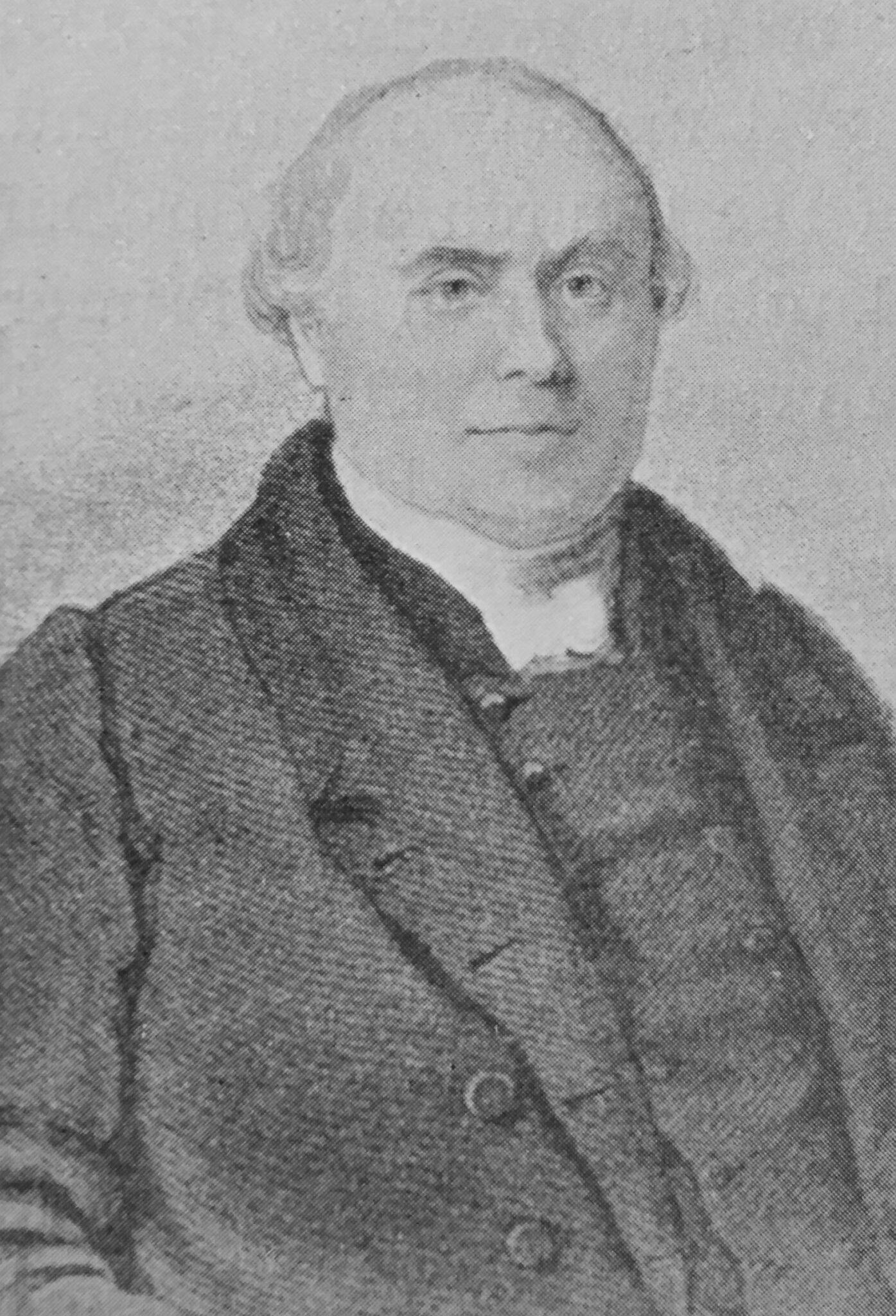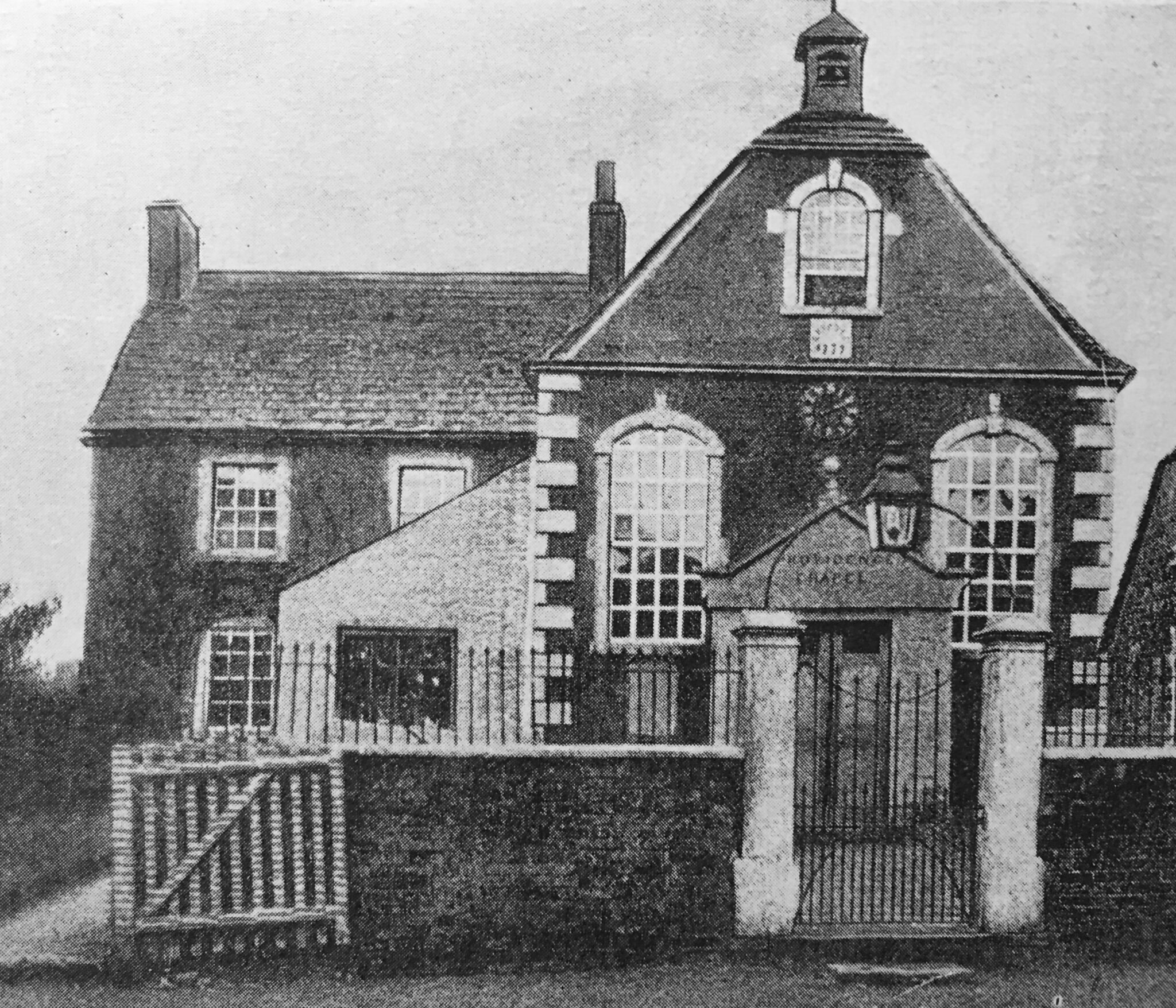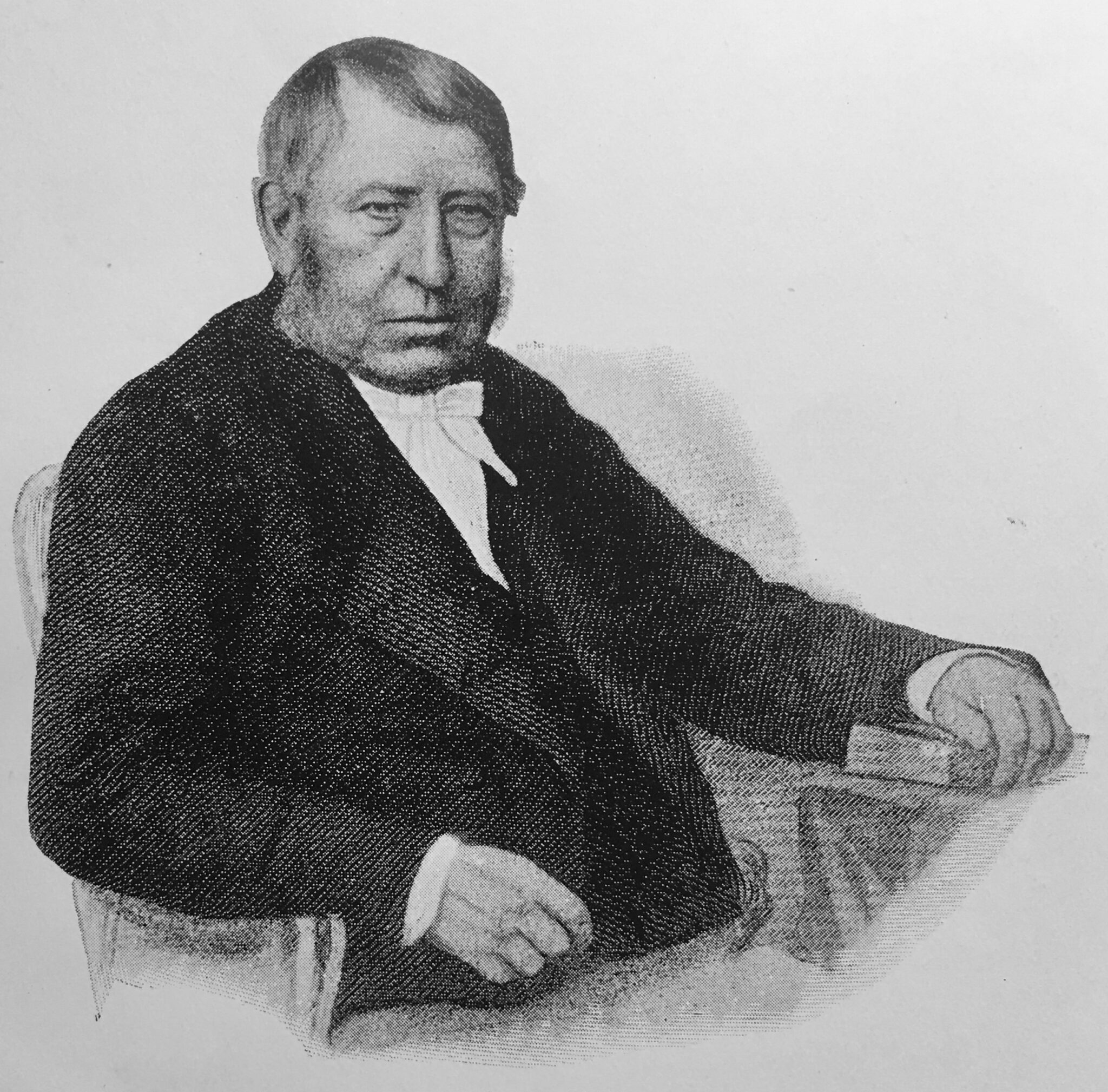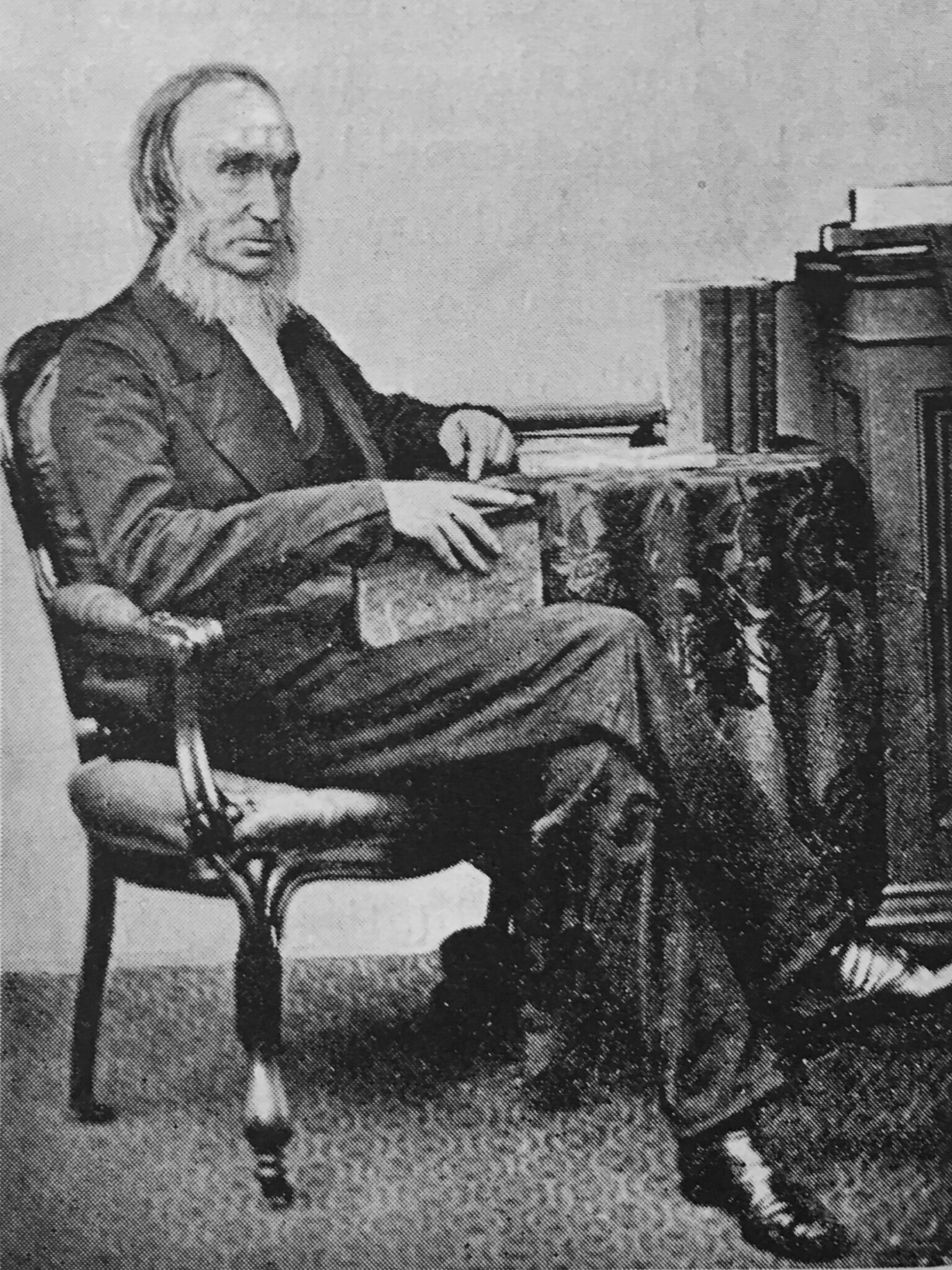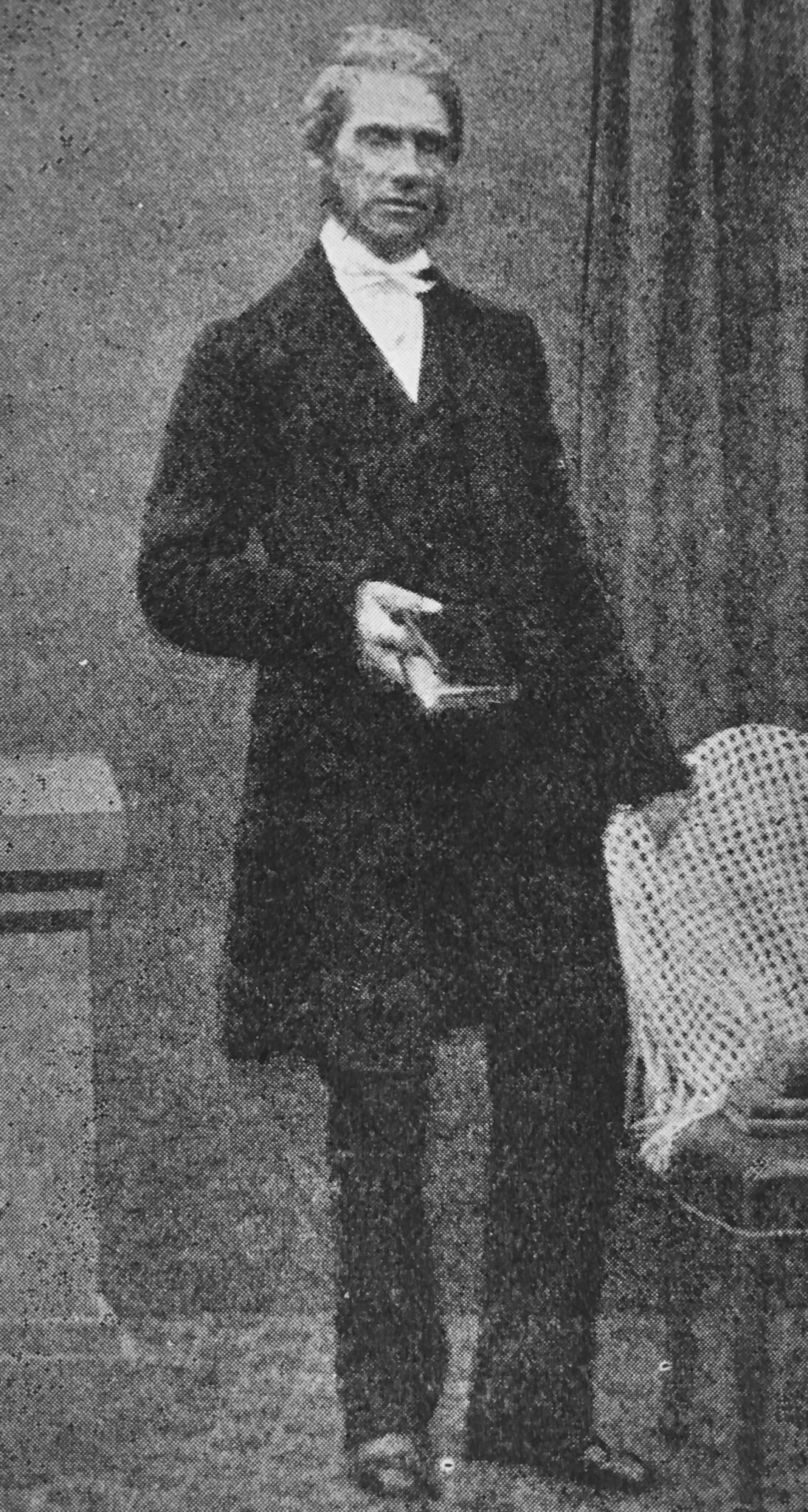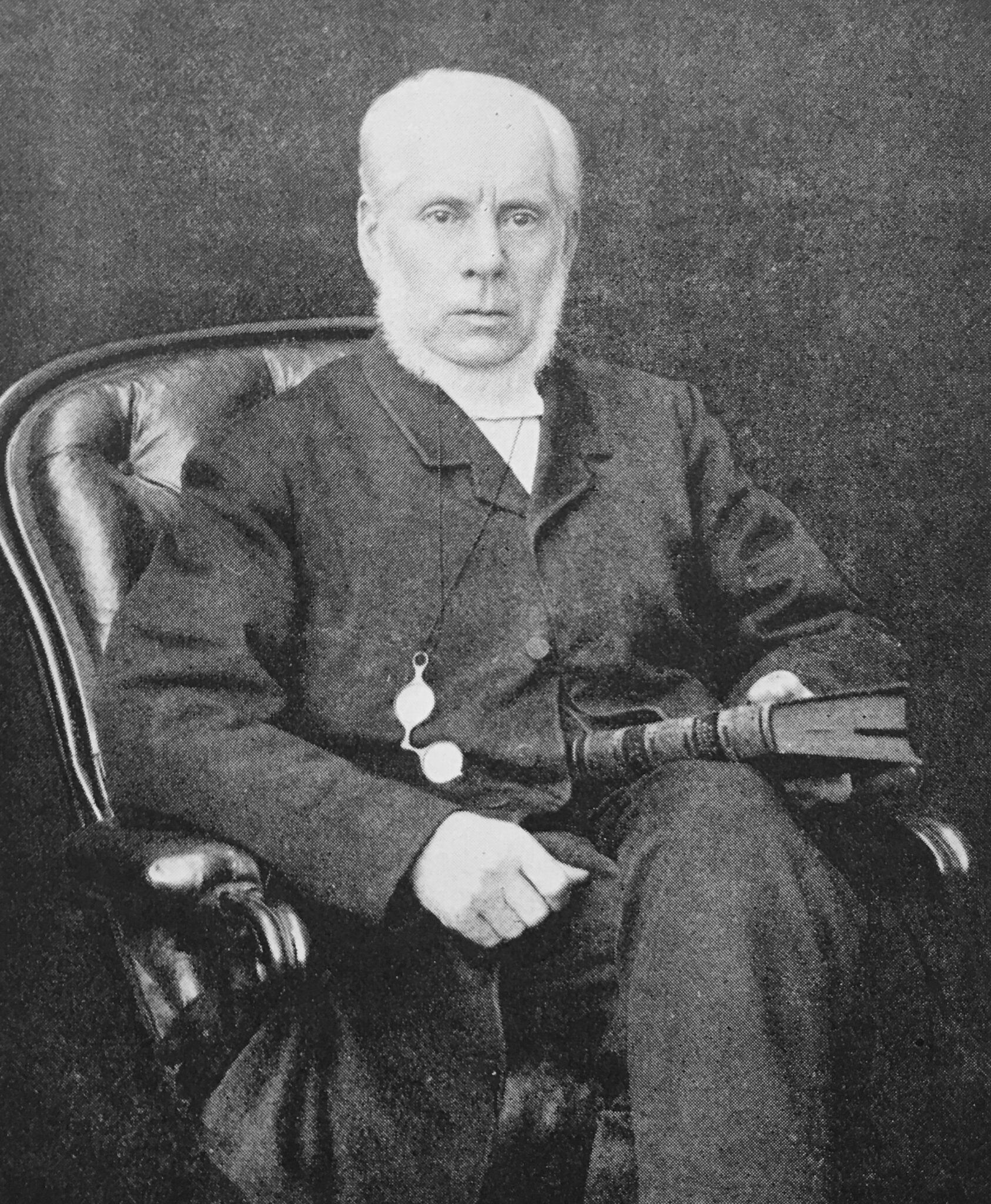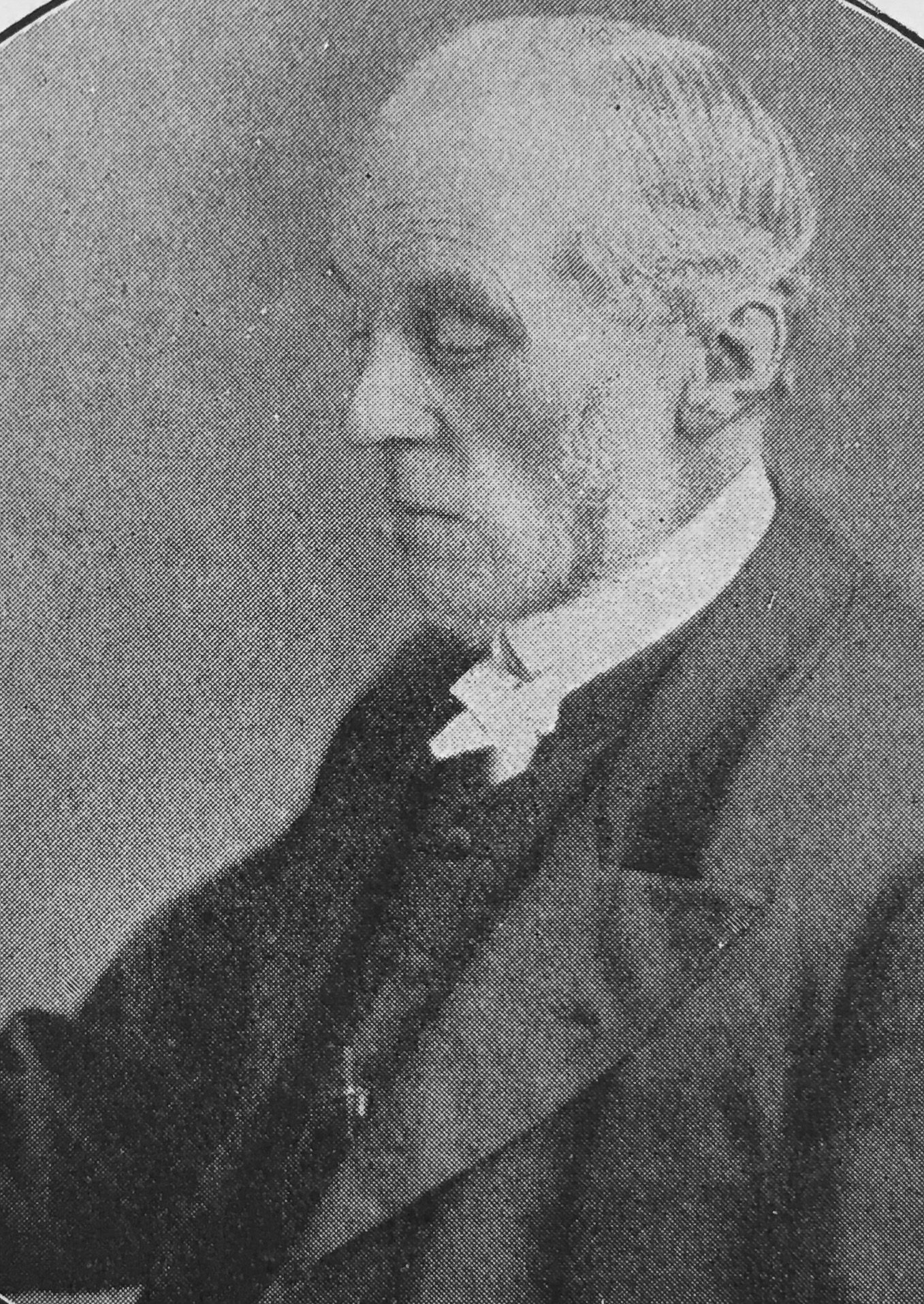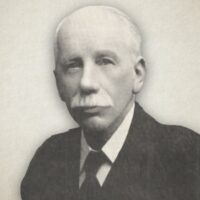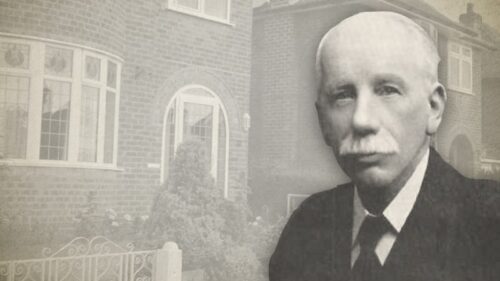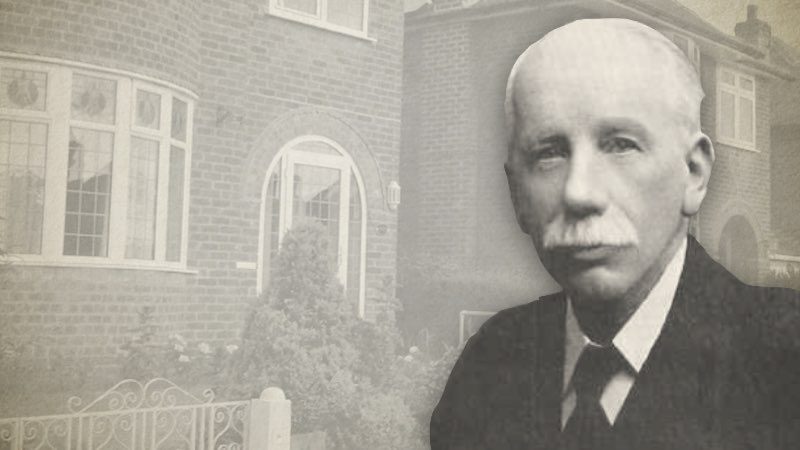
Chapter 7: The Baptists
“For by one Spirit are we all baptized into one body.”—1 Corinthians 12:13
In sketching some of God’s witnesses among the Baptists in the nineteenth century, Samuel Eyles Pierce (1746-1829) should be first mentioned, because in his earlier years he sat under the ministry of Toplady, Romaine, and Hawker, with the latter of whom he was on terms of close friendship till the end of the life of the Vicar of Charles. Romaine’s ministry was especially useful to him. He writes: “In a subsequent sermon, Mr. Romaine said, ‘Believers, you that are believers, God looks upon you as He doth on Christ; and loves you with the love He doth Him.’ ‘I looked up,’ says Mr. Pierce, ‘with amazement! Oh, thought I, if I can find this in the Word of God, it is the greatest truth I ever heard. I will go home and search the Bible. I conceive the 17th of John is the most likely place to find it.’ I constantly went every Lord’s Day, and I was so swallowed up in hearing that I always stood; nor did I lose one single sentence. I received it into my very heart. Mr. Romaine often expressed himself thus—’It was contrived by the counsel and covenant of the Eternal Three.’ I had never been used to such expressions; there was a sublimity and greatness in them which reflected their glory and majesty on my mind.” In 1783 he became Pastor of the Church at Truro, and in 1805, minister of the Baptist Church in Printer’s Court, Shoe Lane. For upwards of fifty years he continued his Christ-exalting ministry. His works are of permanent value, especially his book on John 17, and his two volumes of Letters, a favourite book of the late Charles Hemington, of Devizes.
We now come to an eminent and powerful minister of the Gospel of a different type—William Gadsby, of Manchester (1773-1844), whose labours extended to well-nigh every part of the country, and who by his sermons, hymns, and other writings, exerted a wide spiritual influence, and his interest in the poor and needy in Lancashire and elsewhere rendered his public advocacy of their cause of great value.
William Gadsby
In him we have a man of eminent public spirit, as well as of originality and spiritual force. His parents were very poor, and he had but little education; this he nobly remedied in later years. He was originally a ribbon-weaver, then a stocking-weaver. The first time he preached was in 1798, in an upper room in a yard at Bedworth, from the words, “Unto you therefore which believe, He is precious.” His Hymn Book, now so widely known, was first published in 1814, his desire being ” to have a selection of hymns free from Arminianism and sound in the faith, that the Church might be edified and God glorified.” He removed to Manchester in 1805, and while over the Church there he travelled over 60,000 miles and preached nearly 12,000 sermons. He exercised great local influence, and his labours in the cause of Bible teaching to the young were continued to the end of his life.
His son, John Gadsby (1808-1893), was known as a printer and publisher, and above all, as the author of “My Wanderings; being Travels in the East,” in two parts, a work which, with Thomson’s “The Land and the Book,” ranks first among volumes of biblical illustrations, drawn from the manners and customs, scenes and scenery of the East. These books are worthy of being studied by all who value the Word of God, and who delight to know its meaning as interpreted by the customs of the unchanging Orient. Of his spiritual history he says: “Next to my own dear father there was no man’s ministry made so useful and dear to me as that of the late William Nunn, of St. Clement’s, Manchester, and the late Henry Fowler, of Gower Street” (1779-1838); thus we have another proof of the true oneness of the people of God though outwardly separated by denominational distinctions.
John Warburton (1776-1857) was a link between two generations, for in the early years of his ministry he was encouraged by William Huntington and afterwards became the friend of Joseph Charles Philpot, whom he baptized at Allington in 1835. Of him Mr. Philpot says: “I have heard Mr. Gadsby preach as great, perhaps greater sermons, but I never met with a minister whose prayer in the pulpit, or whose conversation out of it, was so weighty. Hundreds, perhaps thousands, have borne witness to the power and savour which rested upon his testimony; but the blessing he has been made to the Church of God will never be fully known until the day when the secrets of all hearts shall be revealed.” Rochdale and Trowbridge were the places of his pastorates, and by his book, “Mercies of a Covenant God,” his memory will long be cherished by the family of faith. His account of his interview with Huntington casts light upon the character of these two men of God and gives us a glimpse of the latter in his study in his house at Hermes Hill, Pentonville: “The good old man was sitting at his table with his cap on, and his Bible open before him, and he looked just like the Prophet Elijah in my eyes. But I was so shaken that I could hardly tell what to stammer out, nor did I know for a few moments what to say. At last, however, I said I had read his book, ‘The Kingdom of Heaven taken by Prayer,’ many years ago, and it had been made a great blessing to my soul then, as it had been ever since at times, and that I had made a vow that if ever I came anywhere near where he was I would tell him of it. But the dear old man never spoke a word, nor lifted up his head. At last I said, ‘It is a mercy that we are poor sinners!’ He replied, ‘There are many poor sinners that know nothing of the matter.’ Warburton then began to speak of the work of God the Holy Ghost in the heart. Huntington looked up and said, ‘What dost thou know of the love of God? What is it? And what are the effects of it when known and felt in the soul?’ Then I told him what God had done for me. He looked up with tears running down his cheeks and blessed God for what He had taught me; and I believe he brought twenty portions of God’s Word to prove that it was the teaching of the blessed Spirit of God; and we both wept together. He opened his table-drawer and scraped up all the silver he had in it and poured it into my hands, and said ‘I give you this for your family.’ With great cordiality he shook me by the hand and uttered words which have been a source of many comfortable moments to me since, when I have been sinking almost into despair. The words were these: ‘May the Lord God of Abraham, of Isaac, and of Jacob, bless thee and go with thee.'”
John Warburton’s last moments bore testimony to the blessing invoked. The dying saint wished to say something; he was asked, “Is it to tell how good the Lord is to you in your last moments?” He lifted up both hands, and waving them with peculiar delight, said “Yes, yes.” He still continued to appear as if those around him did not sufficiently understand him. With great exertion he lifted up both hands, pointing with his finger and labouring to articulate something. At last he said, “Hal—Hal—!” Then followed with a firm voice, without a waver, “Hallelujah!” and he immediately breathed out his soul. “Mark the perfect man, and behold the upright; for the end of that man is peace.”
His son, who became pastor of the church at Southill, Beds, was in his early days very wayward, and enlisted in the army. Dear old Mr. Warburton followed him from place to place with prayers and tears, and at last wrote to Arthur Triggs (1787-1859), who was then at Plymouth—afterwards at Zion Chapel, Waterloo Road, and Gower Street Chapel—asking him to see his boy. He willingly undertook this task, and with the utmost kindness and consideration wrought for the welfare of the lad. His father wrote: “O the kindness, the love, and feeling, that my dear brother Triggs manifested to one so unworthy! It knit my soul to him in a moment, and we were one spirit. Scores of times has my soul begged the best of blessings to rest upon him and his. The poor prodigal returned home, and a hearty welcome he had, and I soon found the work was of God.” Here were two good men often libelled as “hard” and “narrow,” deeply stirred by concern for this poor wanderer, and in this, as throughout their lives, tender and patient in their dealings with such as he. Every doctrine of grace applied to the heart by the Holy Spirit melts and softens, sanctifies and solemnises, banishes levity, and gives depth, weight, and power to testimony. Father and son never wavered from the truth, were never carried about with divers and strange doctrines, and never speculated or reasoned beyond what they knew and felt for themselves.
We now come to one of the chief theologians and preachers of the nineteenth century—Joseph Charles Philpot, M.A., of Worcester College, Oxford (1802-1869)—a man of great grace, profound learning, and with a literary style equal to any of his contemporaries.
Joseph Charles Philpot
For twenty years he was editor of the “Gospel Standard,” in which his New Year’s Addresses, Meditations, Reviews, and Answers to Correspondents were outstanding features. His ten volumes of sermons, entitled “The Gospel Pulpit,” and his four volumes of “Early Sermons,” testify to his powers as an expositor of the Word, to the beauty of his illustrations, and the heart-searching character of his ministry. He was born at Ripple, Kent, where his father was rector, and educated at Merchant Taylor’s and St. Paul’s schools, entering at Oxford University in 1821, taking a first-class, and ultimately becoming Fellow of his College. He accepted an engagement in Ireland as a private tutor, but prior to his departure he was unexpectedly detained at Oakham. There he bought a book, “Hart’s Hymns,” and was much struck by the beauty of many of them. In 1827, in Ireland, eternal things were first laid upon his mind, and “I was made to know myself as a poor lost sinner, and a spirit of grace and supplication poured out upon my soul.” He returned to Oxford in the autumn, and “the change in my character, life, and conduct was so marked that everyone took notice of it.” Early in 1828 he was appointed to the perpetual curacy of Chislehampton, with Stadhampton—or Stadham—not far from Oxford. He soon gained the love and esteem of his parishioners. His Church was thronged, and his labours were unceasing amongst young and old. In 1829 he became acquainted with William Tiptaft (1803-1864), vicar of Sutton Courtney, and a friendship commenced which death alone severed. Both ministers had been- led to know the truths of predestination and election and the final perseverance of the saints, and preached them with unflinching boldness. Persecution soon arose; it always does in some quarter when there is a faithful ministry. In 1831 Tiptaft built a chapel at Abingdon, where he remained as a Baptist pastor until his death. In 1835 Mr. Philpot resigned his living and his fellowship; the temporal sacrifice entailed was such that he had to sell almost all his books. Soon after this momentous step had been taken he preached in a chapel at Newbury, which some of his friends had procured for the purpose. He writes: “When I therefore began to open up that God had a chosen and peculiar people the whole place seemed in commotion. One man called aloud, ‘This doctrine won’t do for me!’ and started out, and was instantly followed by five or six others. I was not, however, daunted by this, but went on to state the truth with such measure of boldness and faithfulness as was given me. Some of my friends at the chapel thought that the people would have molested me, but no one offered to injure me by word or action, and I came safe out from among them.” He also writes: “——is, I fear, something like the robin spoken of in ‘Pilgrim’s Progress, who can eat sometimes grains of wheat and sometimes worms and spiders. I am quite sick of modern religion; it is such a mixture, such a medley, such a compromise. I find much, indeed, of this religion in my own heart, for it suits the flesh well; but I would not have it so, and grieve it should be so.”
He preached much at Allington, near Devizes, and in the Metropolis, and many other places. His ministry was attended by crowds, and was blest to saint and sinner. In 1838 he became Pastor of the Churches at Oakham and Stamford, residing in the latter town till failing health caused his removal to Croydon. At the time of his settlement at Stamford he became associated with the “Gospel Standard,” and in 1849 he was appointed editor. He was a most interesting writer on the things of God. His sermons are experimental rather than doctrinal, but when he treated of doctrine it was in a comprehensive and scriptural way, as his “Meditations” amply prove. His book on “The Eternal Sonship” practically closed the controversy which gave it birth. His “Reviews” are most instructive and brilliantly written. Would that the younger members of our Churches made a study of them! “The Advance of Popery” was another work which had a wide circulation, and events today prove the accuracy of the forecasts so solemnly made therein. His “Letters” have been a means of grace to many, and it is refreshing through them to know the spiritual history of some of the excellent of the earth in their day and generation, and to have glimpses of services at Eden Street, Gower Street, and Great Alie Street Chapels, and at Came and other places, especially in Wiltshire.
The accompanying illustration of the picturesque village chapel of Bradenstoke, in Wiltshire, where the truth has long been preached, will prove interesting. It is remarkable in having a bell in its little tower.
Bradenstoke Chapel, Wiltshire
William Tiptaft, to whom reference has been made, exercised a ministry largely used to the awakening of sinners and to the driving of those who had only a name to live from the false confidences in which they trusted. Of him Mr. Philpot says: “He seemed ever ready to make any personal sacrifice for the glory of God or the good of His people. Time, money, health, strength, life itself, he did not consider his own. He felt he was but a steward who held them in trust, and who might be called at any hour to render an account of his stewardship. To live to God, to walk in His fear, to serve and please Him, to preach His truth, to do His work, to know and obey His will, and to be made a blessing to His people, seemed to be his daily end and aim. I have known men of greater natural abilities, of deeper and more diversified experience, of more shining pulpit gifts, of more enlarged views of Divine truth; but I have never seen anyone, whether minister or private Christian, who approached him in his own peculiar line of practical Godliness, carried out with undeviating consistency for the thirty-five years during which I had the pleasure and profit of his friendship. The Churches of truth needed an example of the practical power of the doctrines which they profess. A light, loose, Antinomian spirit had too much prevailed, and with a great deal of religious talking there was a very small amount of religious walking. But however low quickened souls or living Churches may sink, they have still a conscience made tender in the fear of God, and to this conscience William Tiptaft’s keen, pithy remarks, and, above all, his Godly life and shining example, commended themselves.” Three of Mr. Tiptaft’s sayings will show what manner of man he was. “If you have not found mercy are you among the seekers?” “If we were allowed to choose our own ballast it would be something as light as sawdust or shavings, but grace must be tried.” “What a great work is the work of the ministry—to stand up between the ever-living God and never-dying souls!” “‘If thou shalt cease to warn the wicked their blood will I require at your hands.’ Soul blood stains deeply.”
John Kershaw (1792-1870), for 53 years pastor of Hope Chapel, Rochdale, exercised a ministry which was useful to thousands all over the country.
His autobiography is one of the best books of its kind and one striking incident we will quote. It is his account of his interview in Edinburgh with Dr. John Duncan, often called “Rabbi” Duncan, because of his profound knowledge of Hebrew. Dr. Duncan (1796-1870) was Professor of Hebrew in New College, Edinburgh, and was a man of the most acute and profound intellectual powers, and at the same time a deeply spiritual and Scriptural preacher.
John Duncan
In learning and associations he was at the antipodes of plain John Kershaw. In November, 1861, Mr. Kershaw preached in Edinburgh, arrangements having been made through Lady Lucy Smith, who was desirous that his original and powerful ministry should be exercised there. He writes:—”Another of my visitors was Dr. Duncan, who I was told by one of the ministers understood fourteen languages and that there was only one in the City who surpassed him in learning. He told me he had heard me preach three sermons, and he quite agreed with me in every statement that I had made, both in doctrine, experience and practice, save one, and that I had not fully entered upon, namely, ‘the extent of the call of the gospel.’ He candidly told me that his human learning had for years past been a great hindrance to his coming to a saving knowledge of the truth, and he had proved Paul’s words, that the world by wisdom knew not God; and referring me to 1 Cor. 1:21,22 said he was for a long time like a wandering star or a ship at sea without a compass, ready to settle in every ‘ism’—sometimes Arianism or Socinianism; and sometimes his mind was bordering upon infidelity. He declared himself much ashamed of many of his theological productions. When it pleased the Lord to work in his soul by the power of the Spirit he was for a long time in a distressed state, not knowing what to do to get peace and comfort. A conversation with another minister was made useful to him and he was enabled to go to the feet of Jesus as a little child and beg Him to teach him, a poor ignorant sinner, by His Spirit and His Word. The Lord graciously heard prayer and revealed Himself as his Saviour and Redeemer. We spoke of Scott’s ‘Force of Truth,’ in which the author confessed he had been priding himself on his human attainments, opposing the doctrines of grace, and despising his neighbour, that dear man of God, John Newton, who eventually was made a blessing to him; also of John Berridge, who preached some years before the Lord stripped him and caused him to flee to Jesus for refuge. The conversation I had with this man I hope never to forget.”
John Grace (1800-1865), Septimus Sears (1820-1877), and Frederick Tyron (1813-1903) were eminently equipped for their God-given work. The first named was highly esteemed in many parts of the country, but best known in Brighton and in the county of Sussex as a lively and plain experimental preacher, to whom not a few could refer as the instrument used in delivering them from darkness and bringing them into the kingdom of “the Son of His love.” Mr. Sears was a man of gifts and grace; a frail and afflicted body was the tenement of his spirit, which glowed with the constraining love of Christ. For many years he was pastor of the Church at Clifton, Beds, and by his fresh, searching and Christ-exalting ministry was most useful in his day and generation. He was one of the pioneers of juvenile and tract literature; the well-known magazines, “The Gleaner” and “The Sower,” both of which he commenced, still continue their career of usefulness. His selection of hymns for Sunday schools, his Clifton Hymnal for the services of the house of prayer, and his own poetry make his memory fragrant.
Frederick Tyron was originally ordained to the ministry of the Church of England, but a few months afterwards with the help of a few friends he built a chapel at Deeping St. James, Lincolnshire, where his ministry continued from 1839 to 1903; he was no ordinary pastor, but laboured night and day for the spiritual welfare of those committed to his charge. His sermons were sententious and weighty and his Letters reveal an epistolary gift of rare grace and power.
John Foreman (1792-1872) was for upwards of 40 years pastor of the Church at Hill Street Chapel, Marylebone—a tall, stalwart, rugged man, with an iron constitution and of tremendous energy. When an agricultural labourer in the county of Suffolk he was called by grace; his first pastorate was at Cambridge, whence in 1827 he came to London. Although not a learned man, in the usual sense of that expression, he possessed varied general information, which he obtained by considerable reading, by intercourse with men, and by long and close observation. As a preacher he was distinguished by great plainness of speech and vigour of address; his sermons were often very instructive and impressive, and many of his thoughts grand and lofty. There was, however, considerable inequality in their value. His voice was strong and clear and, when he was warm in his subject, was exerted with great animation and rapidity of utterance. He was emphatic in declaring salvation to be entirely by grace and not in any sense or degree by works. Hence he had a great antipathy to what is termed the duty-faith scheme, which in his view, as it makes salvation depend on the exercise of faith as a moral duty, entirely enervates and destroys the character of the Gospel dispensation; changing a system of free favour and special distinguishing grace into one of condemnation and legal bondage. At the same time he was careful to maintain the necessity of good works, as the fruit of a gracious change of heart. His “Remarks on Duty-faith,” with a preface by James Wells, is a valuable production worthy of a reprint. It gives a fairly complete idea of his views of truth, and affords a sample of his style in writing and preaching. As an able minister of the New Testament, he distinguished carefully between the several covenants therein set forth, and faithfully described the various characters therein indicated. Careful and prayerful attention to the nature of these covenants, as set forth in various parts of the Old Testament especially, will clear away clouds of difficulties which often trouble young believers. He was tender and sympathetic in his addresses to the weak and tried, and careful and considerate to the lambs and nurslings of the flock. He was a remarkable proof of what the Divine Spirit can effect by the instrumentality of a plain, unlettered man, so far as the learning of the schools is concerned. Possessed of the smallest possible advantages of early education he had to make his way by dint of perseverance and self-culture.
Part of a report published by bis Sunday School during his pastorate has present-day lessons. “At the commencement of our school it was supposed by some of our friends that it was impossible to carry on the Sabbath-school on free grace principles. The experiment, however, was tried, and our prayers have been answered —we have not to pronounce it a failure. Free-will and duty-faith have never formed a part of the creed of any of the teachers to our knowledge. We have always contended that life must precede action, and, consequently, have never been able to invite the dead to perform acts that belong alone to the living. The first chapter that was read in the school, in the hearing of the children, was John 3, in which is set forth the necessity of the new birth, and that alone by the invincible and omnipotent power of the Holy Ghost. Here we took our stand and from this point we have never swerved. The grand and glorious doctrines of free and distinguishing grace, as preached by our pastor, have ever been maintained as the truth within the walls of our school; and, although warm advocates for the use of means, we have never believed, much less taught, that there is any power or efficacy in them, but that they are only useful as made so by the Holy Ghost. The providing of suitable class books has been a matter of no small concern. A catechism was chosen, and others added after, besides reading and spelling books; but as years rolled on, one after another was given up, until we are left with the Bible only. This is our one class book for all who can put their words together.”
James Wells (1803-1872) was for upwards of forty-two years the Pastor of the Church worshipping in the Borough Road Chapel and afterwards in the Surrey Tabernacle.
James Wells
He was born at Alton, Hampshire, and was brought up roughly and hardly, but, being a lad of spirit, he had an ambition at a very early age to earn his own living in his journeys to the Metropolis and back. His pursuit of knowledge under difficulties was rewarded to a wonderful extent, and he acquired much information. In December, 1824, he had an illness of three months, which at one time seemed likely to terminate fatally. He tells us that then “the innumerable multitude of my sins set themselves in array against me, and the terrors of the Almighty made me afraid.” His health began to improve, but spiritual and mental conflict drove him well nigh to despair. At length peace came through Isaiah 54:8, “In a little wrath I hid My face from thee for a moment, but with everlasting kindness will I have mercy on thee, saith the Lord thy Redeemer.'” In 1827 he began to preach in the open-air in the Broadway, Westminster, and afterwards in Rochester Row and Princes Place, where, in 1830, a Church of twenty members was formed. Chapels in Soho, Bermondsey and the Borough were successively occupied, increasing numbers being gathered together. The chapel in the Borough Road was rebuilt, and then enlarged, and ultimately the present spacious and beautiful building in Wansey Street, Walworth, was erected. God greatly honoured the ministry of His servant in the conversion of sinners and the building up of believers. The Pastor’s labours were incessant, and his visits to various parts of the country were helpful to thousands.
The covenant love of a Triune God in the full-orbed Gospel was the theme of his ministry, and was proclaimed with great originality and power. For sixteen months prior to his departure he was prostrated by affliction. From the sick-room emanated letters which have since been published and are fragrant of heaven. To those privileged to visit the dying saint many sacred words were spoken. He loved the Book of Psalms, and delighted much in those from the 23rd to the 53rd. “I am three-parts through the valley, and would not go back, even if I could.'” “The truth I have preached for forty-three years I steadily abide by. The finished mediatorial work of the dear Redeemer is a subject very dear to my heart. I withdraw not one Gospel truth I have advanced, bless the Lord! The work of the Holy Spirit is dearer to me than ever.” Such were among his last utterances: “Lift me up, brother, a little higher—a little higher,” and then, in a few minutes, he fell asleep in Jesus.
One of the most famous of Mr. Wells’ sermons was on “Infant Salvation,” from Mark 10:14, preached in 1870. We quote here from the “Gospel Standard” of thirty-eight years ago:—”As a good old countryman at Manchester some years ago said, ‘Talk about infants not being able to believe, why John the Baptist was a believer before he was born. Yes, and as the late Mr. Gadsby once said, ‘He rejoiced in believing, too, for he leaped for joy in his mother’s womb.’ Indeed, to say that infants cannot be believers is, as we have said, to limit the power of the Almighty. If true faith were a simple faith or a duty faith in the power of the creature to receive or reject as he pleased, then we admit that infants would not have the power to receive it; but faith is the gift of God and the mighty work of the Holy Spirit in the heart, and it is just as easy, we speak as men, for His blessed Majesty to work that faith in the heart of an infant as in the heart of an adult, as in you, reader, or us.”
“Bold Infidelity, turn pale and die;
Beneath this turf an infant’s ashes lie;
Say, Is it lost, or saved?
If death’s by sin, it sinn’d, because ’tis here;
If heaven’s by works, it can’t in heaven appear.
Ah, Reason, how depraved!
Revere the Bible’s sacred page; the knot’s untied;
It died, through Adam’s sin; it lives, for Jesus died.”
John Hazelton (1822-1888), for thirty-six years the Pastor of the Church meeting at Chadwell Street Chapel, Clerkenwell, is well known by the five volumes of his monthly sermons, and by his steadfast adherence to the truths made precious to his soul by the Holy Spirit.
John Hazelton
His life has been narrated with rare literary grace by Mr. W. Jeyes Styles, a second edition of whose book was called for. His biographer writes:—”When fairly underway there was a dignity in his carriage, a grandeur in his steady flow of appropriate language, and a majesty in his thoughts that commanded close attention. At times his heart caught fire and he rose to flights of eloquence of no common order. We never knew him embarrassed for want of a thought, or at a loss for the very word he required. In a sermon delivered at the settlement of a minister he said: ‘Preach a four-square Gospel, in which election, redemption and regeneration are co-extensive. Preach salvation by mercy, by merit, and by might; by love, by blood, by power. The Father’s love, the moving cause; the Saviour’s blood, the meritorious cause; and the Spirit’s power, the efficient cause—to the praise of the glory of free and sovereign grace.’ His ministry was heartily received by all who loved distinctive truth. The writer remembers the late Mr. John Gadsby once speaking of it to him in affectionate terms. Part of the inscription on the memorial tablet in the chapel contains all that is necessary to sum up this reference: ‘Called by sovereign grace in early life, and qualified by the Holy Spirit for the work of the Christian ministry, he was enabled to proclaim the truth as it is in Jesus, in all its fulness and sufficiency. Bold in the advocacy of those doctrines which the Holy Spirit had revealed to him, it was his delight to set forth the love of a Triune Jehovah in the salvation of His Church; the Cross of Christ and His righteousness were to him a glorious reality, and “Jesus only ” was ever the theme of his ministry.'”
Charles Hemington (1830-1904) was born at Over, Cambridgeshire.
Charles Hemington
For fifteen years he ministered to the people at Corpus Christi Chapel, Plymouth, and then, from 1871 to the time of his death, he was Pastor of the Old Baptist Chapel, Devizes, where his teaching was highly valued by his people, and his frequent visits to Gower Street Chapel and West Street Chapel, Croydon, were seasons of help and blessing to many. To his matured judgment his brethren were ever ready to defer, and his gracious and powerful influence was of the utmost use among the Churches. His love to and sympathy with the young were evinced by the annual sermons he preached to them and on their behalf. His wisdom and foresight are apparent by a few sentences, by which “he being dead, yet speaketh.”
“In numbers of instances it is a long time after the soul is quickened before the work of the law is very deep. Depend on this, the manifestations of God and His visits often come as little gleams of light. Says the soul sometimes, ‘I think I heard the minister with a little sweetness to-night; I felt a little bubbling up of hope.’ This is the dayspring; do not be discouraged, little ones; God is merciful, and He will perfect the work. Young believers do not see things very clearly, and I do not care to see them so far advanced. When they get to be men and women all at once, I am puzzled about them. ‘He that believeth shall not make haste.” I am no pre-existerian. Pre-existerianism is phantasy of the human brain. It is sufficient to know that the blessed God did condescend to give presages of His gracious appearing in our nature.”
“Those people who read the prophecies of Scripture and see nothing but good coming upon the nations of the earth, before the morning cometh are altogether in the dark with regard to the meaning of those prophecies. Coming judgment, calamity and woe for the nations are plainly foreshadowed.”
“God’s truth, and not Arminian Protestantism, must be the weapon used to defend our country from worse encroachments of Popery than what are now causing trouble. It is for the godly, who only are on the Lord’s side, to wait and watch for the light of a brighter day, when the great image of false religious systems and doctrines shall be ground to powder by Jehovah’s Christ as the stone cut out of the mountain without hands, and when nothing shall abide and stand as a monument of the glory of God but His own free and sovereign grace truth.”
Dear Charles Hemington! an eminent preacher, a wise counsellor, and a friend, tender and true. “The memory of the just is blessed.”
Space will not allow of any more extended references, but cherished memories of Samuel Milner, D. Smart, Thomas Stringer, Philip Dickerson, Eli Ashdown, Prank Covell, of Croydon, and a multitude of others now in the Fatherland above, recur to those who knew and loved them for their work’s sake and for the Lord’s sake.
The testimony of these servants of God was honoured by Him; their chapels were filled; sinners were brought to a saving knowledge of the Lord; the Churches were edified, and useful service in the name of our Lord Jesus Christ was accomplished. There were no faltering or hesitating notes in their ministry; no keeping back of any part of God’s truth; their careers prove that “Them that honour Me I will honour, and they that despise Me I shall be lightly esteemed.”
The name of Dr. John Duncan has been mentioned; and still there are ministers among the Presbyterians who are steadfast to the truth. The late Dr. Kennedy, of Dingwall, was a powerful preacher, and in the far north of Scotland there are to-day men of God who are the true successors of these worthies.
In a few words the following lines aptly describe a Christian pastor:—
“Give me the man these graces shall possess—
Of an ambassador the just address;
A father’s tenderness, a shepherd’s care,
A leader’s courage, which the cross may bear;
A ruler’s awe, a watchman’s wakeful eye;
A pilot’s skill, the helm in storms to ply;
The Holy Spirit’s unction from above,
A teacher’s knowledge, and a Saviour’s love.”
John E. Hazelton (1924) was a Strict and Particular Baptist preacher. He was the son of John Hazelton (1822-1888). He was appointed the Pastor of Streatley Hall, London. In the December 1924 Issue, the Gospel Magazine wrote of him:
“For a period of fifteen years he faithfully ministered the Word of life to the Lord's people who met in Streatley Hall, London, and these are a selection of the sermons he preached there, lovingly collected together, and printed in book form. By way of introduction there is also printed A Declaration of Faith by Mr. Hazelton. This was found amongst his papers. It has never before been published. It is full of valuable teaching of such subjects as "The Peril and Needs of Our Churches," "The Holy Scriptures," "The Everlasting Covenant," "The Church," and "The Doctrine of Grace.” Mr. Hazelton was an able preacher of the everlasting Gospel, and he loved to exalt Christ and to abase the sinner. These sermons are full of rich Gospel teaching. They tell of a full and an eternal salvation, arranged and planned in the great Covenant of grace before the foundations of the world were laid. They tell of the electing love of God the Father, the redeeming work of God the Son on behalf of His Church and people, and of the regenerating and sanctifying work of God the Holy Ghost. They tell of the blood and righteousness of the Divine Surety of the everlasting Covenant. They are marked by fulness of Gospel truth and by tender and loving words to seeking and penitent sinners. They display a considerable knowledge and much care in preparation. They are the words of a true man of God who in dependence on the aid of the Divine Spirit earnestly proclaimed the Gospel of Divine grace in the prayerful hope that God the Holy Ghost would use the message as the means of regenerating the sinful objects of His eternal mercy. Space will not allow us to quote from these pages, but we strongly advise our readers at once to get the book and make it point of reading one of the sermons every week. Mr. Hazelton was called home on May 8th last. His last sermons were preached on April 6th and 13th, and they form the concluding sermons of this volume. A beautiful portrait of the beloved author forms the frontispiece. By these sermons, and by his valuable Declaration of Faith, he being dead, yet speaketh.”
John E. Hazelton Sermons
John E. Hazelton's "Hold-Fast" (Complete)
John E. Hazelton's Declaration Of Faith (Complete)



